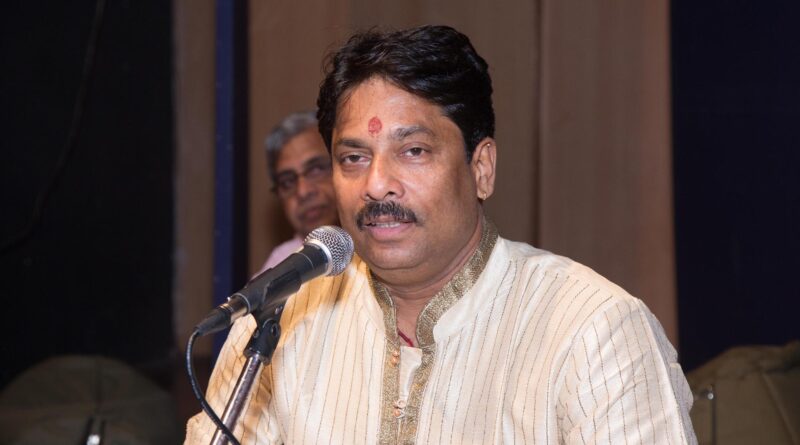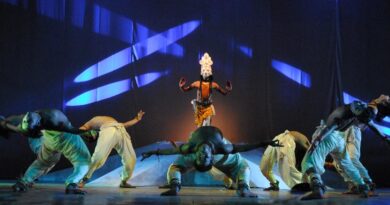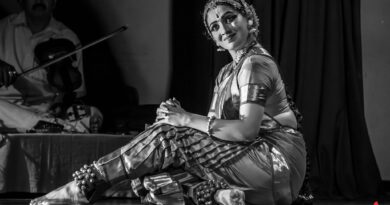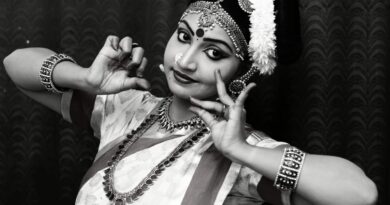Sivaprasad: A Virtuoso Of Carnatic Music
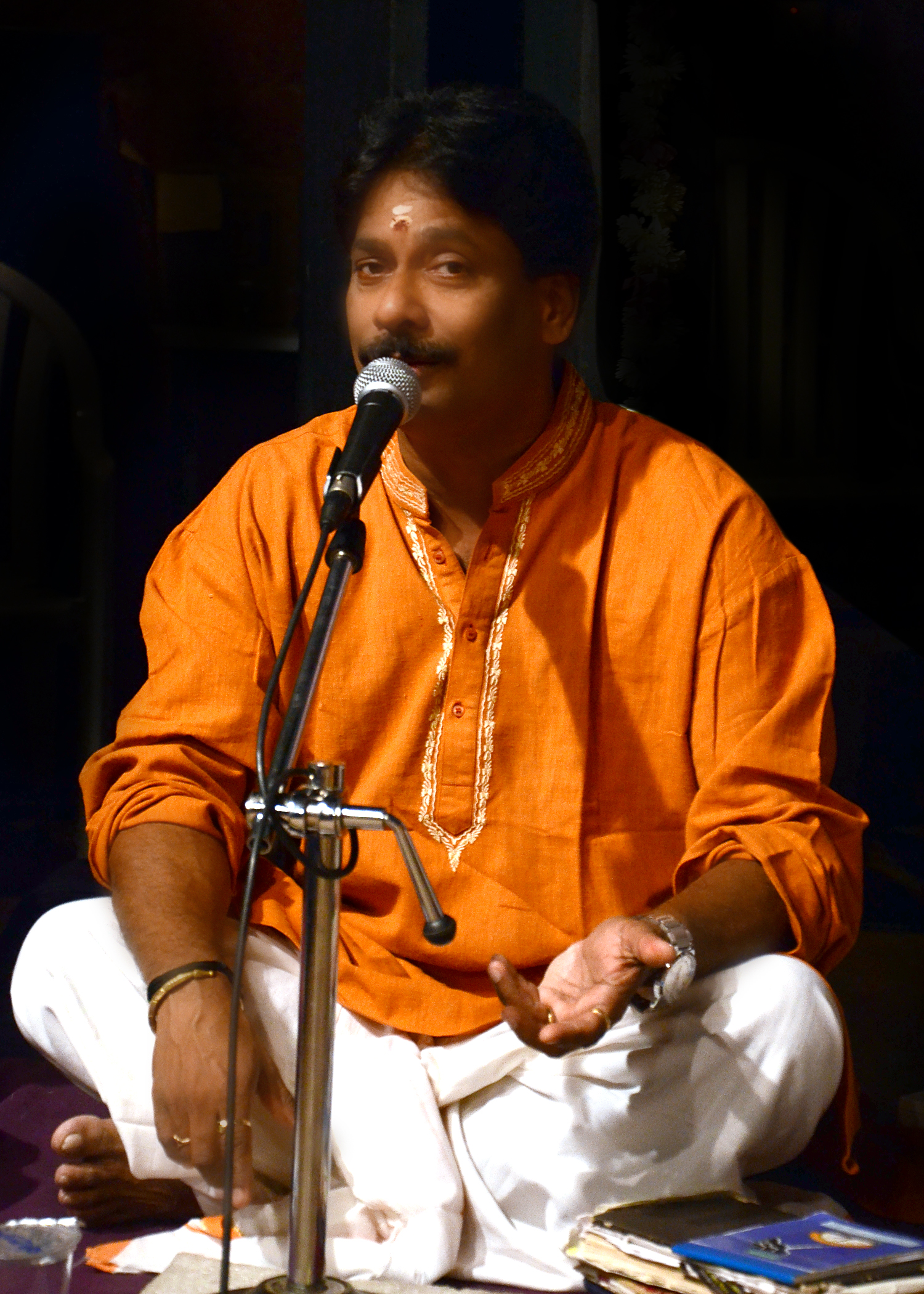
Pursuing art is a challenge and dreams become true with constant hard work. He had challenges but he had a dream, a dream that made him a virtuoso of Indian classical music. Being a Keralite working for a livelihood in Mumbai, language was a huge barrier for him but he sang his way through to glory. He learnt Hindi, English and some Marathi too. Importantly, he had music in him and it erased boundaries. He made learning an indispensable part of his life and worked his way up the ladder. In his initial days in Mumbai, he worked in a job, taught music and also performed. Renowned Indian classical artiste Sivaprasad had a fascinating journey from mundu to jeans, enjoying every moment of it. He proved that anything is possible with a heart for learning.
Sivaprasad Narayanan Namboodiri popularly known as Sivaprasad NN is an Indian classical artiste born in Sreekrishnapuram village in Palghat district, Kerala on 30 May 1970. His father Guru VN Narayanan Namboodiri was a teacher in a school. He was also a singer for Kathakali. His mother was a busy housewife tending to seven children (four brothers and three sisters). She also served the frequent guests who visited their house to meet his father. “My mother couldn’t help knowing about a lot of music,” he laughs. She sang for Kaikotti Kali and festival dances. His father is no more but his mother still enjoys going to programmes as much as she can. She makes it a point to go whenever Sivaprasad performs in Kerala.
He never planned on becoming a musician. Music was a way of life. It was simple. Being born into a family of artistes, both musicians and dancers, every morning he woke up to musical notes and never thought beyond music. For him, the world of music seemed wonderful to live in. Temple and home were his favourite places, “…not school,” he laughs. His father and brothers were into performing arts. “I remember, for fun, we brothers used to sit around the Shruti box practising music together, playfully,” he recollects. Music was a natural process for him.
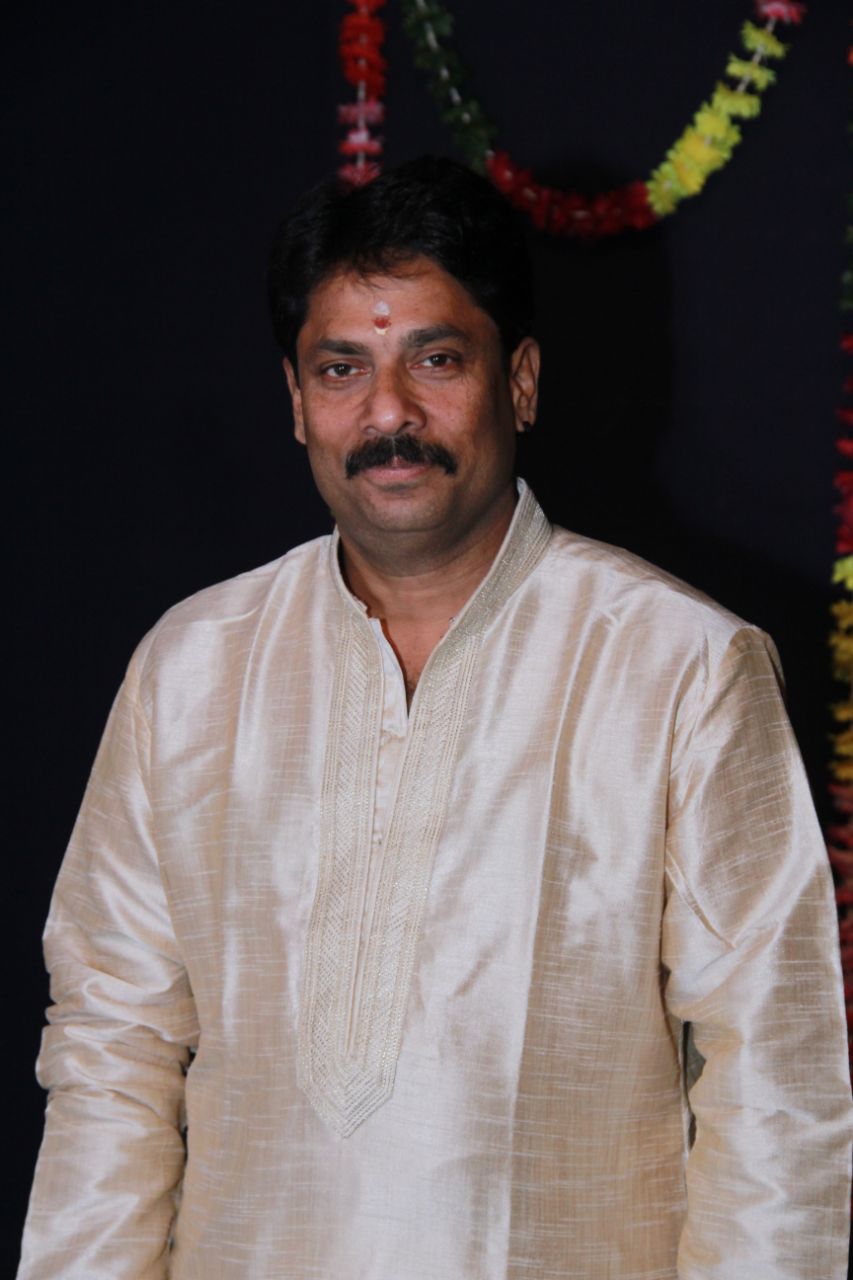
His father was the first teacher who helped him make inroads into the world of music. He practised Sopanam style of singing for Kathakali and was a strict teacher. “He gave me both, the gift of life and music, for which I am deeply thankful to him and God,” says Sivaprasad. Later on, Sivaprasad learnt from KM Krishnan who has been instrumental in moulding him into whatever he is today as a singer. He was also inspired by his uncle (father’s older brother) Krishnan Namboodiri, who was a world-renowned artiste. Krishnan Namboodiri was a lecturer in Rabindranath Tagore’s Shantiniketan and also a founder member of IPTA – an international Kathakali organisation. He was a renowned theatre artiste who travelled worldwide.
Sivaprasad’s first performance on stage happened when he was 9 years old at Eswaramangalam Mahaganapathi temple in Kerala. It was his first solo Carnatic concert. “The best part was that I didn’t know that it was my arangetram,” he once again laughs. People had gathered and his father asked him to take the stage. He was excited and performed whatever he had learnt, ragas, taanams and even incorporated some improvisations.
He wanted to travel the world. His elder brother worked in Bombay (now Mumbai) and he helped him get a job in the economic capital, as it was important to earn a living. He worked as a typist for almost a year. “My boss was scary. I didn’t know any other language except Malayalam and a few words in English,” he says.
Soon he started teaching music in Mumbai and his life began to become bright. He met many artistes and one such meeting with Guru Ramaswamy Bhagavatar changed the course of his life. The guru heard him sing many times and one day he praised him. Those days, it was quite rare to see a guru praise. “He said he was impressed with my dedication and sincerity and at the same time realised that I didn’t know anything about the dance style of Bharatanatyam,” says Sivaprasad. The guidance, training and the skills that Ramaswamy taught him then have remained with him till date. He taught him to observe the moments of dancers and sing to create the mood they required in the presentation. Most importantly, to give them the desired music. “I was trained by him in all the dos and don’ts required for Natyam,” he explains.
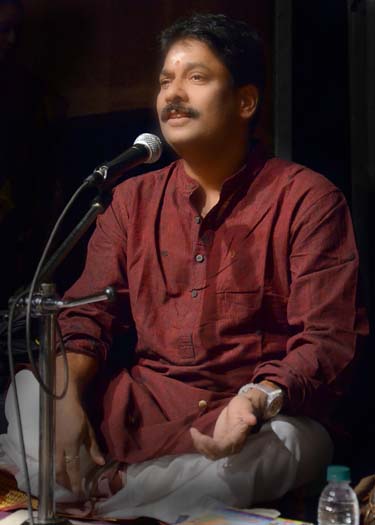
He frequently sang for Guru Ramaswamy’s students, one of them was Sudha Chandran, who went on to become a renowned actress. Gradually, other dancers started approaching him to sing for them. In the last 30 years, he rendered his voice for many artistes in Mumbai, across the country and even abroad.
Sivaprasad not only sang for Bharatanatyam recitals but also for Mohiniyattam, Kuchipudi, Kathakali and Odissi. The experience of singing for Guru Kelucharan Mohapatra was a pure treasure to me. Occasionally, he accompanied some fusion shows too. “I have had the pleasure to sing for Manipuri style on a couple of occasions when the dance troupes presented Jugalbandis,” he says.
According to him, the music tradition has not changed in terms of training but the way the fraternity approaches vocalists has changed over the years. There was a time when it was believed that singers who sang for dance wouldn’t be able to excel as soloists and vice versa. Now all singers want to show their prowess in every kind of presentation including fusion, jugalbandis, singing for dance, other experiments and performing solo.
Another side to this tradition that Sivaprasad points at was that in the olden days, there were Nattuvanars who used to teach dance, do Nattuvangam and also sing. They were superb at creating jatis using kannukol. They were complete artistes. Today that has changed drastically. When nattuvanar grew old, vocalists were invited to accompany them. A purely trained singer added value to the presentation and thus music became an important feature in dance recitals.
As far as taking his music tradition forward he says that he has been trying to spread the art especially to dance students. “It is my sincere plea to all the dance students to learn Carnatic music if they happen to learn any south Indian form of dance. Today, unfortunately, some of the new teachers of dance don’t care about learning music. It is truly sad,” he says. He believes that one must invest time and energy in learning music, after all, music is the soul of dance.
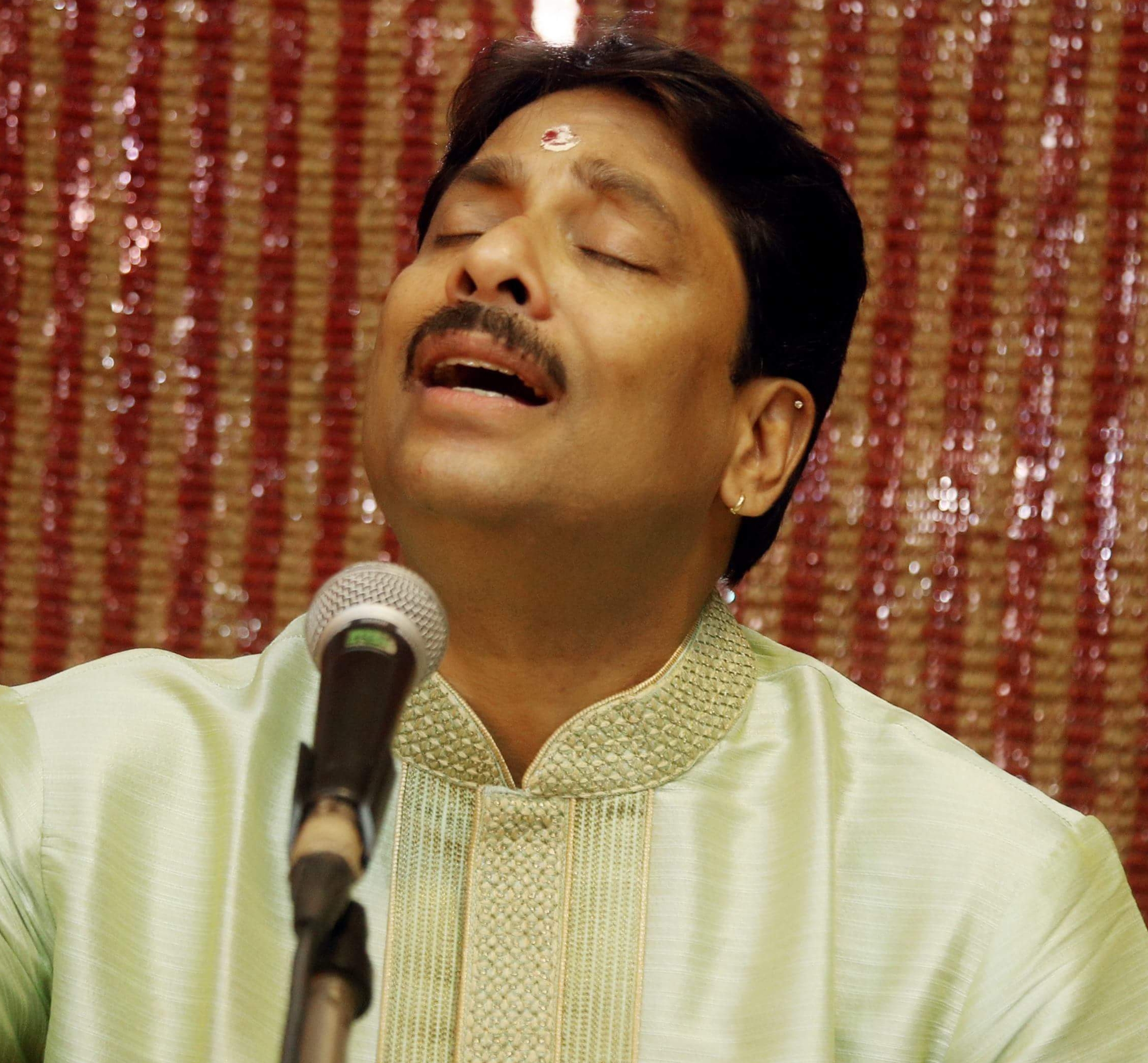
Our country has a rich heritage and its fine arts have always integrated cultures and brought people closer. Dance and music bridged all the gaps with their universal language. “The world outside keeps drawing from our rich cultural heritage, whether it is dance, music, yoga or our traditional arts. It is important to encourage our youngsters and to promote the arts by supporting them. I am still surprised how sports quota is so prevalent and popular whereas cultural quota for jobs is still awaited,” he says.
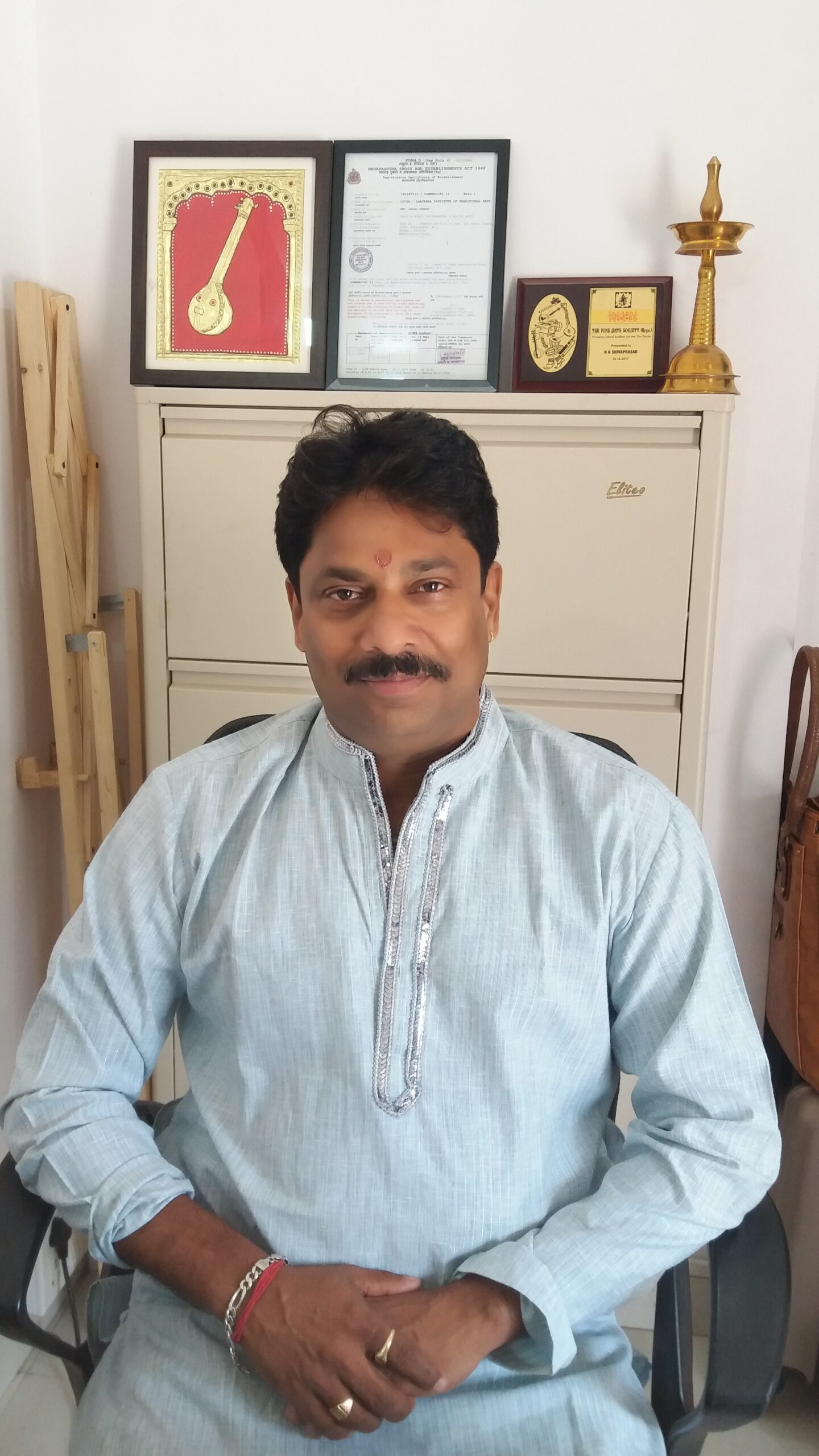
Sivaprasad expressed grief looking at the state of some artistes in the country. “It is sad to watch dedicated artistes in the rural parts of our country who have embraced fine art their whole life lies in poverty because their only source of income came from teaching for meagre sums. There is no health insurance or aid to such senior artists. I wish our government could do something for the yesteryear artistes who have been instrumental in creating hundreds of performing artistes, who now go abroad and earn revenue for the country,” he adds.
He also thinks that every artiste is different in their capabilities and should be respected for it. Some of his first-hand experiences that he shared will leave the patterns of art heartbroken. “Our cultural ministry or state departments must take notice of this issue. Artistes are emotional and I am no different. These strong sentiments come from what I have learnt first hand. A very senior singer from Kerala once asked me to buy his Tambura so that he can get money to feed his family. Another flautist once told me, ‘Siva, please see if someone can buy my flute, I need to go for a medical check-up…’,” he laments and adds, “If there is any way that I can serve the artist community, I am willing to do it.” He strongly opines that there should be a scheme wherein the old artistes would be given pension or financial support.
Talking about inspiration, his father was without a doubt his first inspiration. He made a name for himself from nothing. “He used to tell me how he would get up early in the morning at a tender age of 4 to practice music. Sometimes he wanted to sleep but it was that practice that made him what he was,” he recollects. His uncle also had a big influence on him. Early in his life, these eminent personalities taught Sivaprasad that there are no shortcuts to success. Hard work, sincerity and dedication were the keywords that got etched. Dr Mangalampalli Balamuralikrishna, Bhimsen Joshi, Kalamandalam Gopi Asan and others continue to inspire him. “It is an ocean and a lifetime isn’t enough,” he says.
Sivaprasad loves travelling and meeting people around the world. He is fascinated by the fact, people across the world are so different yet so similar. He likes meeting senior and old artistes and listen to them talk about their lives. He derives great pleasure from being in touch with them. “It is a blessing to me,” he says.
One word of encouragement from gurus meant a world to him. It reflected on the capabilities of the artiste. He thanks his well-wishers, musicians and dancers whom he worked with and friends and family for the support he received. “I wouldn’t be here without their support,” he says.
After a couple of programs with Guru Ramaswamy, he was invited to sing in Pune for a dance recital. He was in his late teens and tried to give his best. After the show got over, he noticed Pandit Chhota Gandharva. Pandit came onto the stage and lifted him like a child and announced that it was the first time that he realised that music and vocals were so crucial for a dance program and how they can enhance the dancer’s performance. It was a special moment that he cherished even today.

He is married to Seema from Mumbai and they are blessed with two boys. “I think that destiny pulled me to Mumbai. I look forward to getting back home after long trips,” he smiles.
He starts his day with a bath and remembers everyone in prayer. He enjoys taking long walks as they give him time to be with himself. In his free time, he likes to spend quality time with his family. He likes listening to instrumental music and simply loves flute.
He came to Bombay with nothing but a dream and now he dreams of contributing to the world of music in every possible way. Under the aegis of Shrutilaya Fine Arts trust, he has been helping people using Music therapy to alleviate their health issues. He has been experimenting with different kinds of music and musical notes. These days composing music has been high on his agenda.
According to him, pursuing a career in performing arts is absolutely possible since there are many avenues to explore as a student of the arts. “One can learn sitting in another part of the world if there is a will. There is a lot of scope in becoming a musician today. It is a joyous profession. We share happiness,” he says.
He sang in many languages and had the honour of performing on a theme which mentioned different states of our country. “I think there were 15 poems in 15 different languages,” he says. In his illustrious career, he not only sang in all the south Indian languages but also Marathi, Gujarati and Hindi.
He thinks that this is a great time to collaborate, as artistes around the globe are well connected. “We are exposed to different kinds of music. It is a great opportunity to collaborate and create appealing sounds. I do think we can retain our individual flavour and traditional framework and yet come up with extremely good music,” he explains. He had several international works with Jazz musicians, African dancers and musicians. “Purity can be maintained even with the exchange. Desi and Margi traditions both have boundaries,” he says.
He received many awards and accolades and interestingly his first award came from Baden in Switzerland. He received some of the prestigious awards in Kerala and Mumbai. “Awards are something that gives artistes an impetus, it is an acknowledgement of a job well done. So I consider the applause of the audience as my greatest award,” he concludes.

